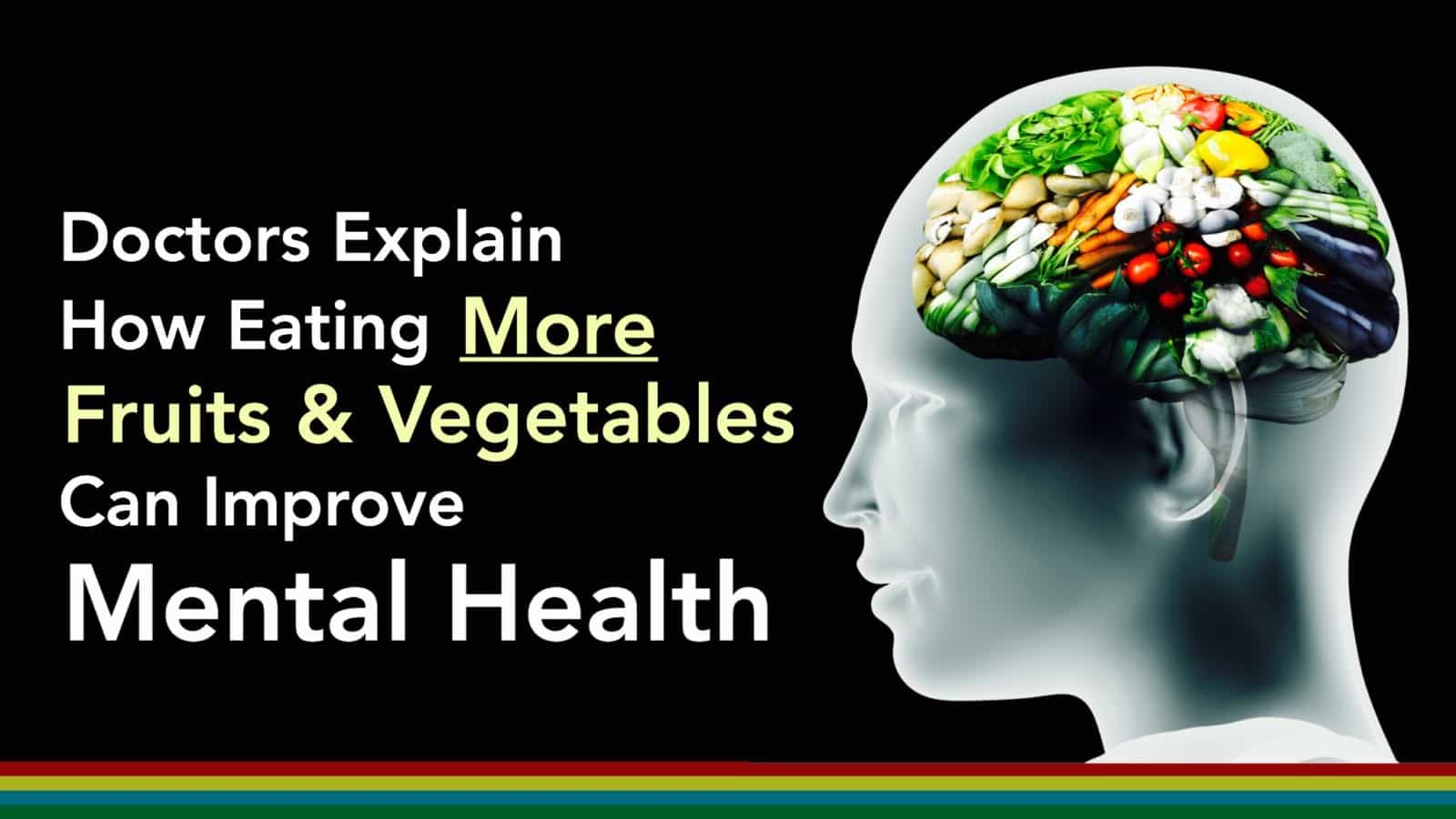For years, we’ve listened to the “Don’t forget to eat your fruits and vegetables!” spiel. Intuitively and fundamentally, we understand that fruits and veggies are good for our mental health.
Consuming the right amount of fruits and vegetables isn’t too hard. Eat 1.5 to 2 cups of fruit per day, and two to three cups of vegetables.
Yet, a whopping 88% of Americans fail to get enough fruit. Furthermore, over 90% don’t eat enough vegetables. According to the Centers for Disease Control and Prevention (CDC). 90% are missing out.
The physical health benefits of fruits and vegetables are well-documented. Individuals who eat an adequate supply of fruits and vegetables have better heart health, greater longevity, and a reduced risk of cancer than those who do not eat enough ‘F&V.’
The physical benefits of eating plenty of F&V should be enough to persuade all of us to eat more. However, the mental health benefits of fruits and vegetables are also numerous.
“These results provide initial proof-of-concept that giving young adults fresh fruit and vegetables to eat can have psychological benefits even over a brief period of time.” ~ Dr. Tamlin Connor
Dr. Tamlin Connor, of the Department of Psychology at the University of Otago in New Zealand, and her colleagues discovered that young adults who ate the recommended amount of F&V for two weeks displayed more flourishing, motivation, and vitality than those who did not eat the recommended amount.
The Study on the Impact of Healthy Foods on Mental Health
Dr. Connor and her colleagues randomly assigned 171 low-F&V consuming adults into one of three groups:
– a ‘diet-as-usual’ group (to compare against.)
– a ‘momentary intervention’ group, wherein each person received a text message reminder to eat more F&V and a voucher to purchase food.
– a fruit and vegetable intervention group in which participants were given two additional daily servings of fresh F&V to consume on top of their normal diet.
Participants rated the following both before and after the trial:
– Daily negative and positive mood.
– Vitality, flourishing, and flourishing behaviors (curiosity, creativity, motivation).
– Anxious and depressive symptoms.
Out of the three groups, only the individuals assigned to the F&V intervention “showed improvements to their psychological well-being with increases in vitality, flourishing, and motivation across the 14-days relative to the other groups.”
The participants received an average of 4 daily servings of fresh fruits and vegetables – namely, apples, carrots, kiwi fruit, and oranges.
The researchers are careful to point out that, while anxiety and depression may be relieved over the long-term by eating more F&V, two weeks is just not enough time. While none of the groups reported significant changes in this area, improvements to mental well-being in related areas may provide a glimpse into the value of supplementing F&V to relieve symptoms.
The team concludes:
“This is the first study to show that providing high-quality FV to young adults can result in short-term improvements in vitality, flourishing, and motivation. Findings provide initial validation of a causal relationship between FV and well-being, suggesting that large-scale intervention studies are warranted.”
A Look at Superfoods That Improve Mental Health
It’s likely that the vitamins and minerals contained within fruits and vegetables account for the improved mental well-being of participants in the above study.
Neuroscientists state that certain vitamins and minerals help the brain produce chemical messengers (neurotransmitters) vital for mental acuity and clarity, learning, memorization, and mood stability.
As with all foods, not every fruit and vegetable is created equal.
There will be days when it’s very hard to sit down for a meal, much less acquire the recommended servings of these nutrient-dense foods.
This is where superfoods come in! You can often can get the nutritional punch from one serving of a superfood than you can with two, uh, “non-super” foods.
The word ‘superfood’ describes food with high nutrient content and associated health benefits.
What Foods Should You Eat?
Here are some fruits and veggies that are superfoods:
– Avocados: 100 grams of fresh avocado contains 12 grams of healthy unsaturated fat. Contrary to asinine low-fat diet advice, monounsaturated fats are critical to health; they lower bad cholesterol levels, which in turn reduces the risk of heart disease and stroke.
– Blueberries: Blueberries contain a bunch of antioxidants, which are essential for fighting off harmful free radicals. These little blue delights can improve skin health, aid weight loss, boost brainpower, fight cancer, combat aging, and support digestion.
– Broccoli: Broccoli is one of the most nutritionally balanced foods. It has a good amount of dietary fiber, calcium, iron, and potassium. It’s also a good source of vitamins A, C, and K.
– Lemons: Lemons boost our immune system due to their high concentration of vitamin C. In fact, just one lemon meets your recommended daily amount. Lemon also raises good cholesterol levels and is a powerful anti-inflammatory.
– Spinach: Spinach contains vitamins A, and C. It’s also a good source of folate and magnesium – two critical building blocks of the brain chemicals dopamine and serotonin.
– Sweet potatoes: Sweet potatoes are one of the best sources of beta-carotene, which converts into vitamin A in the body. They’re also an excellent source of vitamins A, B6, and C, potassium, and fiber.

















